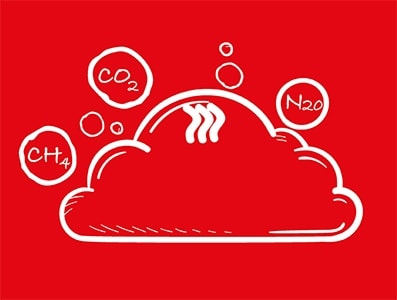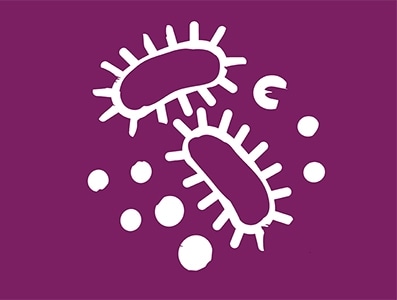
Improving Lifetime Performance of Animals
At dsm-firmenich, we aim to improve the lifetime performance of farm animals by improving animal health and welfare at every stage of the lifecycle.
The world population is projected to reach 9.7 billion in 2050, according to the United Nations. As the population grows, the demand for food and for animal protein will continue to rise. Over time, this need for ever-increasing quantities of animal protein, which is already placing tremendous pressure on our planet’s finite natural resources, will lead to significant environmental strain and take our food systems well beyond the planet’s boundaries.
Our portfolio of feed additives and nutritional solutions promote sustainable food production, and we have worked for the more than 15 years on measuring the associated environmental impacts using Life Cycle Assessment (LCA). We are working both on the quantification of the environmental impact coming from the production of our products (cradle-to-gate) and from the downstream animal protein production (cradle-to-farm gate). For more information on measuring the environmental footprint of animal protein production, please visit Sustell™.
LCA is a widely recognized methodology used to quantify the environmental impact of a product or service, by accounting for the environmental impacts of each life cycle stages, from the raw materials, production, transportation, use and end of life. LCAs are usually conducted to understand the total environmental impacts of a particular product or service and the drivers of those impacts.
We provide transparent documentation on our cradle-to-gate LCA for most of our products and solutions through our Environmental Product Declarations (EPD).
Our Environmental Product Declarations are compliant to ISO 14021, and third-party verified from DNV. Third-party verification serves to assure our customers that EPD footprint calculations are reliable and credible.
Please reach out to your dsm-firmenich representative or contact a specialist via our website to learn more.
The need to provide enough animal protein for a growing population, while reducing the environmental costs of farming will require smart science and innovative solutions. With our innovative portfolio of feed additives and nutritional solutions we can help address the following key challenges:
We aim to improve the nutrition and lifetime performance of farm animals by improving animal health and welfare at every stage of the lifecycle. Optimizing the health of livestock is essential for improving animal performance and overall production efficiency and thereby helping to drive more sustainable animal production.
Consumers, veterinarians and farmers all share an interest in healthier farm animals. Healthy animals are more productive, have a lower impact on the environment and less need for antibiotic treatment.
Animal protein is a key part of healthy, balanced nutrition and is also essential for the provision of key micronutrients. Specific nutritional intervention during the animal production period can help enhance end-product quality and thereby help to avoid food waste.
Animal farming has to reduce the emissions it produces, cutting levels of methane and nitrous oxide and reducing ammonia emissions. We are helping to enable a low-emissions future for animal farming while supporting animal welfare.
Better animal nutrition improves animal health and performance while reducing the environmental footprint and generating sustainable returns on investment. With our portfolio spanning from enzymes to mycotoxin risk management techniques, we are supporting animal health, helping to make more efficient use of natural resources and thereby safeguarding feed quality.
Our mission is to support sustainable animal production beyond improving lifetime performance of farm animal by also reducing in emissions from livestock, making efficient use of natural resources, making land use more efficient, protecting and replenishing biodiversity and reducing food loss and waste along the value chain.
Our entire dsm-firmenich Animal Health & Nutrition strategy is built based on our six sustainability platforms from our WE MAKE IT POSSIBLE initiative, aligned to the United Nations Sustainable Development Goals (SDGs)

At dsm-firmenich, we aim to improve the lifetime performance of farm animals by improving animal health and welfare at every stage of the lifecycle.

We’re focusing our passion and expertise on using micronutrition to improve the quality of meat, milk, fish and eggs, to help reduce food loss and waste. We are transforming animal nutrition and health to build a sustainable future, responsibly.

We’re focusing our passion and expertise on finding ways to reduce greenhouse gas emissions from livestock. We are transforming animal nutrition and health to build a sustainable future, responsibly.

We’re focusing our passion and expertise on developing sustainable solutions that enable animals to extract more nutrient from their feed. We are transforming animal nutrition and health to build a sustainable future, responsibly.

We’re focusing our passion and expertise on cultivating marine algae that naturally produce omega 3, EPA/DHA, so we can help reduce the reliance on wild fish stocks and enable the aquaculture industry to grow. We are transforming animal nutrition and health to build a sustainable future, responsibly.

We’re focusing our passion and expertise on developing novel nutritional solutions which increase the resilience of animals to stress and pathogens, thereby limiting antibiotic use. We are transforming animal nutrition and health to build a sustainable future, responsibly.
We’re so convinced of the value of doing well by doing good that our strategy is aligned with the Sustainable Development Goals (SDGs) outlined by the United Nations in 2015. We’re contributing to all 17 SDGS, but we strive to deliver on five in particular: